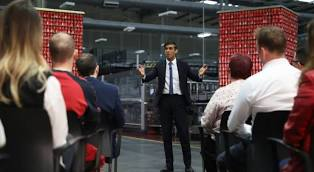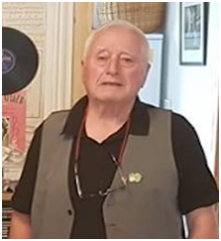Close result or otherwise – its Kamala Harries to
win
The polls during the US Presidential election 2024 have been unusually, and to my mind unrealistically static for two months – almost as if the pollsters are afraid to make a mistake and go out on a limb.
Well I am about to do so.
Have been following the campaign avidly, ever since Kamala Harries became the Democratic party candidate. Yes she faced odds against her - a woman, black and hampered by being closely allied with the Biden administration. Trump has relentlessly exploited those three facts on a daily basis with incredible degree of exaggeration, venom and untruths and in the last week his speeches at time been pretty wild and incoherent.
Harries is far more intelligent, coherent, experienced via her previous roles as lawyer, senator and attorney general and has easily overcome his jibes, insults and increasingly vitriolic comments. More often than not laughing about him That was evident in the only debate they had and that experience was enough for Trump to pull out of another other planned encounter.
Trump has obvious personal, behavioural, moral and legal failings that have been very well rehearsed for years - plus in 2024 he is a criminal running for President! But none of that bothers his cult followers, evangelicals, majority of white males and rabid Republicans. But over the last week there is an undercurrent of distrust, tiredness with his divisiveness, the lying and general behaviour pervading through. Witness his rallies and the dwindling attendance. People are getting tired of his divisive, violent rhetoric as well. In addition there has been open discourse concerning his mental state, memory recall and cognitive well being.
So I reckon there are sufficient
cohorts of ‘soft’ and ‘sensible’ Republicans who just quietly go about their business
and will not vote for him plus non- aligned and independent. It’s also a
question of where will the republicans supporters of Vikki Haley and Liz Cheney
go.
One final word about the polls - for weeks they have been showing that it’s a very tight race with little movement in the levels of support for either candidate. That to my mind is unreal and open to doubt. Things are never as static as that in election campaigns. Pollsters have been too scared to be at variance with one another. But of course we practically always forget there is a 3-5% margin of error in every poll.
In the last week lot of scrutiny has surrounded the causes of this. Key reason is polling in US is not that reliable because too many outlets (especially Republican ones ) have their own agenda – they are not truly independent pollsters. Raw data is often adjusted to try and accommodate the pollsters’ hunches etc. Well, my hunch is that ‘soft’ Republicans/independents/women are not openly admitting their support for Harries when responding to polling. It is interesting to note that although the pollsters have been asserting for weeks that the result is too close to call, in the last few days however commentators are leaning towards a Harries win – from a narrow electoral college win to something more significant than that.



